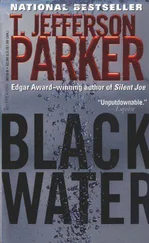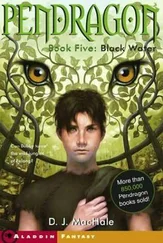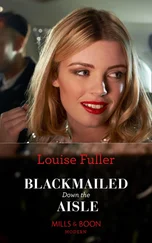Sometimes it would be the heroic fighting-in-the-hills version. At other times he would claim to have witnessed it himself, in which case the streetcorner version worked a whole lot better. His accounts became so detailed, he believed for a while that he had indeed been there. In that version, his father always had time for a few last words for his beloved son before the sword swooped down. In that version, it was quick and clean.
*
Peach-coloured lipstick: that was how he learned of his stepfather-to-be. He and his mother were in her bedroom in the tiny apartment on the top floor of the building behind the laundromat — he couldn’t remember the name of the street, just that there was a hot-dog stand on the corner called Hair of the Pup. They went there when his mother was pretending it was treat time but in fact there was no money for dinner. The hot dogs were pink sponges with skins so fine they were porous: if you squeezed the bun, liquid fat ran out like water.
Technically, the room they were sitting in was their bedroom rather than hers as he slept on a cot at the bottom of her bed, so poorly sprung and sagging that it slung him in a crescent-moon shape a few inches above the floor. His mother was sitting at the vanity unit in the corner next to the window. She was wearing a floral dress with a white collar and was carefully sculpting waves of her hair around her face with a fine-toothed comb and the occasional tsk of hairspray. When she had finished, she patted the waves gently, testing them, then opened a small drawer on the unit and dabbled her fingers amongst the lipsticks inside. She frowned. Selection made, she leaned across the vanity unit into the scalloped mirror, unwinding the lipstick slowly from a golden tube. Harper watched the lipstick emerge. He was six years old and his mother’s rituals still had that power.
‘Hey Mom, is your lipstick called “orange”?’ They had spoken English together since arriving in California. His mother had insisted, had started teaching it to him every day even when they were still in the refugee camp in what used to be Batavia but was now called something else. English was the most important language in the world, she told him, and he could forget his street Malay and Javanese, they were good for nothing. His English wasn’t bad now, although he still lapsed into Dutch from time to time. After spending his early years in the camp, his language development had been slow — Aunt Lies had said, when she first met him, ‘Anika, does he speak at all or is he, you know, backwards?’ Funnily enough, his language skills had caught up ferociously when there were no guards with bamboo canes around.
‘Don’t call me Mom like a Yank kid when we’re alone, only in front of Americans. Call me Moeder . It’s all about who’s around when you’re talking, always remember that. Who are you speaking to and what do you want them to think about you?’ She paused with the lipstick held up to her mouth. ‘How do you think my accent is coming along?’ She smiled into the mirror. ‘I was awful young when I had you, baby boy. Why, I was just a little girl.’ She nodded approval at her own reflection. Nothing was more important than fitting in, she often said, although what you did inside your own head was entirely your own business. Her reflection smiled at him from the mirror and he smiled back at it.
He watched as she leaned forward, applied the lipstick in smooth arcs, rubbed her lips together, smiled at herself the way she smiled when she first met someone, frowned, turned to him.
‘This lipstick is called Peach Dream,’ she said. ‘Do I look like a dream?’
‘ Klaar ,’ he replied.
‘Clearly,’ she corrected him. ‘But that’s a bit formal. Of course would be better. Of and course . Say it for me now.’
‘Of and course.’
‘Two words, you noodle!’
‘Of course it is!’
She laughed obligingly. ‘Very good, Nicolaas. Now, there is something I got to tell you about my new beau. I don’t want you to be shocked.’
This evening, a summer evening in 1949, was the evening he was to meet Michael, the man who would become his stepfather.
‘He’s black.’ Anika had turned back to the mirror and was adjusting the wide straps of her dress, pulling them down a little over her shoulders, turning a little in the mirror.
‘Black?’
‘You know, coloured, a negro, neger , as they say back home. You know what black is, don’t you?’
Before coming to America, Harper had believed black to be him. He had been black in Holland, that had been made very clear to him on a daily basis, in the streets, the shops, the school playground. Neger was one of the more polite things he had been called.
‘The coloureds have had a terrible time over here,’ Anika said, ‘you know that too, the prejudice against them is just awful. You know what it’s like in the South, don’t you? Michael’s father is a lawyer, gets people out of jail. Imagine, a lawyer. You any idea how unusual that is? Mind you I can’t say there’s much sign of Michael himself following suit.’ She became still for a moment. Then brightened again. ‘He was in the army you know, Michael, he was a GI. He fought for our freedom, well, in France, not our Homeland but it was the same thing. Lots of his friends were killed. He was so brave. Anyway, I have another surprise for you.’
Harper had learned over the years that surprises from his mother were not always pleasant ones. He remembered her saying before they left the Homeland, ‘I have a surprise for you, baby boy, we’re going to live in America and you’re going to get a lot of new friends.’ They had been in America for eight months now, moved four times during that period to various tiny apartments, each one a little worse than the last. Sometimes she had worked for a bit, sometimes she had taken in typing and did it on a small but very heavy typewriter that he had had to lug from one boarding house to another. He had had two different schools with a long break between and the new friends had yet to materialise.
‘Maria isn’t coming tonight.’
He felt a clutch of fear. ‘Who’s going to look after me?’ Please let it not be the old man across the hallway who stank of beer and stared at him, stubble-faced and moist-lipped, whenever they passed him on the stairwell. Maria was a plump teenager downstairs who gave him some of her Junior Mints as long as he didn’t tell his mother that she hung out of the window and smoked while she was out. He had neglected to mention that his mother didn’t bother with the window when she smoked in case the Junior Mints dried up. He’d been wondering how many times Maria would have to babysit before he could drop a hint regarding Liquorice Laces.
‘I’m not leaving you tonight, you’re coming with me, you’re going to meet Michael, that’s why I warned you he was coloured and ironed your shirt this morning.’ She pointed to where his clean shirt was hanging on the front of the wardrobe door. ‘We are going on a bus and a trolley car. We are going to Michael’s house and we are going to meet his father, the lawyer, and his father’s, well, whatever she is, and then they are going to look after you while Michael takes me out. Now what do you think about that?’
It was a Saturday and he thought how he and his mother had been together all day — he had watched her iron the shirt on a towel spread out on the floor this morning and had asked her what she was doing. She had known this information at that time but had withheld it from him so that she could ‘surprise’ him. Why did adults do that? Was it something about wanting to prove they were in charge? He tried to process the list of events she had just outlined but it was too much information in one go. He was going out with his mother, that was good: he hated it when she went out without him. They were going on a trolley car together, that would be fun. He would have to put his new shirt on — that was bad. It was too big for him, he could see that just by looking at it. He was going to meet a coloured man and his parents. Would the parents be strict or nice? Would they give him any supper and if so, what would it consist of? Did they have a dog? He longed to play with a dog. His mother would leave him there, in a strange house. That was not good at all. For how long?
Читать дальше












